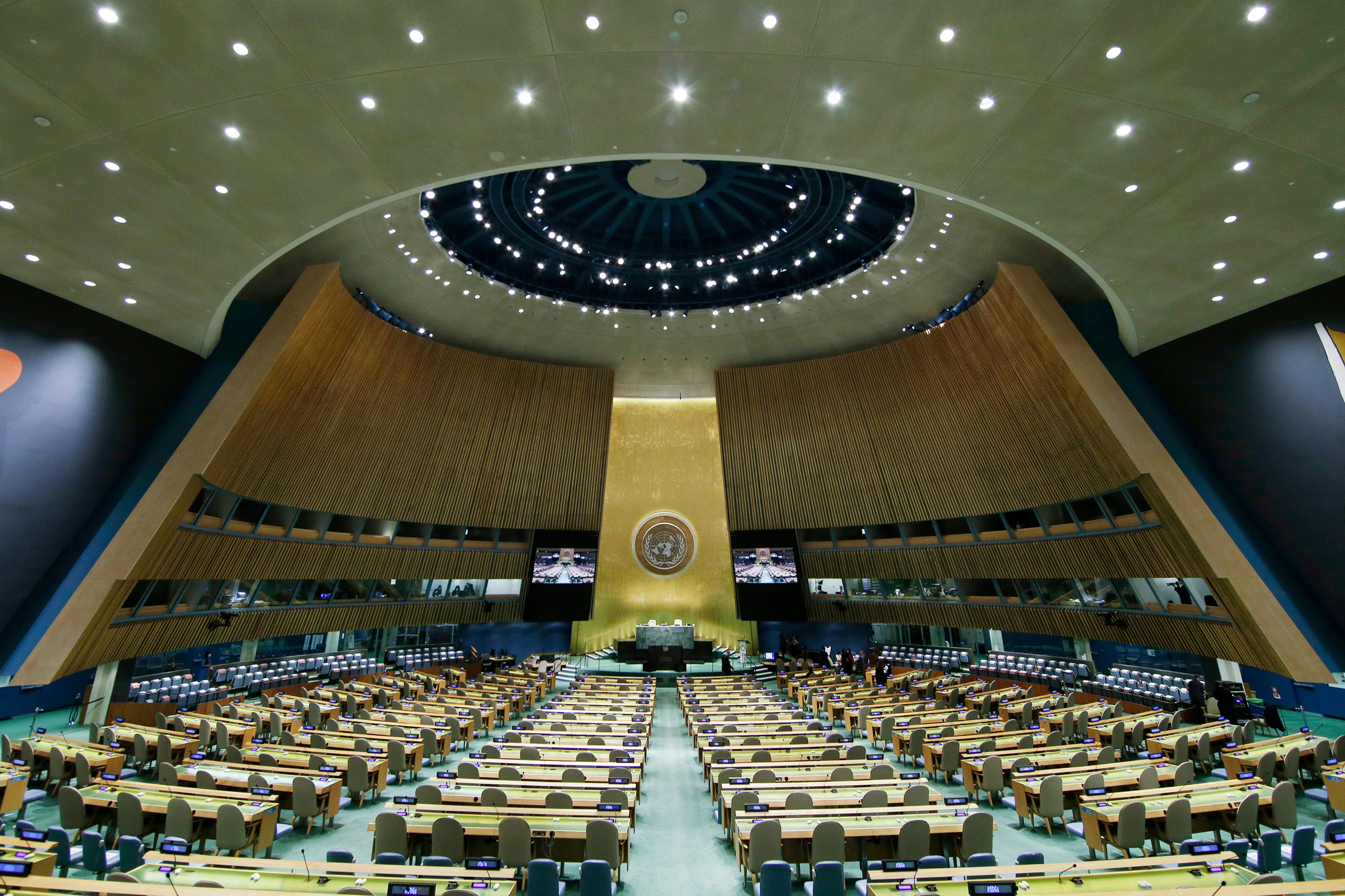China faces grilling in review of key rights by UN committee
China has come in for a grilling over its human rights record as a two-day hearing opened at the United Nations human rights office

China came in for a grilling Wednesday over its human rights record as a two-day hearing opened at the United Nations human rights office, with rights advocates raising issues like relocations from Tibet, COVID-19, reprisals against human rights defenders and a security law that crushed dissidents in Hong Kong.
With advocates of China's Uyghur minority protesting loudly outside, Chinese Ambassador Chen Xu and a delegation of about 40 envoys from China, Hong Kong and Macau faced questions from the U.N. Committee on Economic, Social and Cultural Rights, which reviews respect of those rights in nearly all U.N. member states every few years.
The six-hour hearings mark the first time a Chinese delegation has traveled to answer to a U.N. body in Geneva since the COVID-19 pandemic broke out in 2020, U.N. officials said.
Ambassador Chen rattled off an array of accomplishments, including poverty alleviation, education, longer life spans in China as well as support for other countries in his opening remarks.
“No one can claim a perfect record in human rights protection, as there is always room for improvement. China still faces multiple problems and challenges in promoting and protecting economic, social and cultural rights," including “glaringly unbalanced” development and “stumbling blocks” in some areas of reform, Chen said. He cited problems in areas like education, jobs, medical care, housing and environmental protection.
The hearing was built around questions from submissions from nearly 20 nongovernmental groups, and conducted by independent experts working with the U.N. who make up the committee, which aims to help countries uphold their commitments under the International Covenant on Economic, Social and Cultural Rights.
Michael Windfuhr, deputy director of the German Institute for Human Rights and the committee's country rapporteur on China, laid out a number of questions on issues as diverse as discrimination, access to lawyers, and assurances that Chinese multinational firms wouldn't undermine human rights abroad.
“Dealing with China in six hours devoted to a state review is a challenge for the committee,” he said. “The committee will therefore prioritize the most pressing human rights issues under the covenant.”
He asked how many organizations have been classified as having endangered national security under the hotly contested National Security Law in Hong Kong, and asked how China would improve transparency in the sharing of data about COVID-19 with the international community.
But Hong Kong officials, speaking in English, insisted that the security law has specific provisions for respecting human rights, particularly in the context of some trade union activities, which they considered to have violated the law and had nothing to do with labor rights.
“The Hong Kong (Special Administrative Region) government is dedicated to defend and protect the lawful rights and freedom of association in Hong Kong,” said Hoi-shan Cheung, assistant commissioner in Hong Kong’s Labor Department.
Chinese delegates were expected to provide at least some answers as the hearing on China — one of six countries before the panel this month — concluded Thursday.
Bookmark popover
Removed from bookmarks